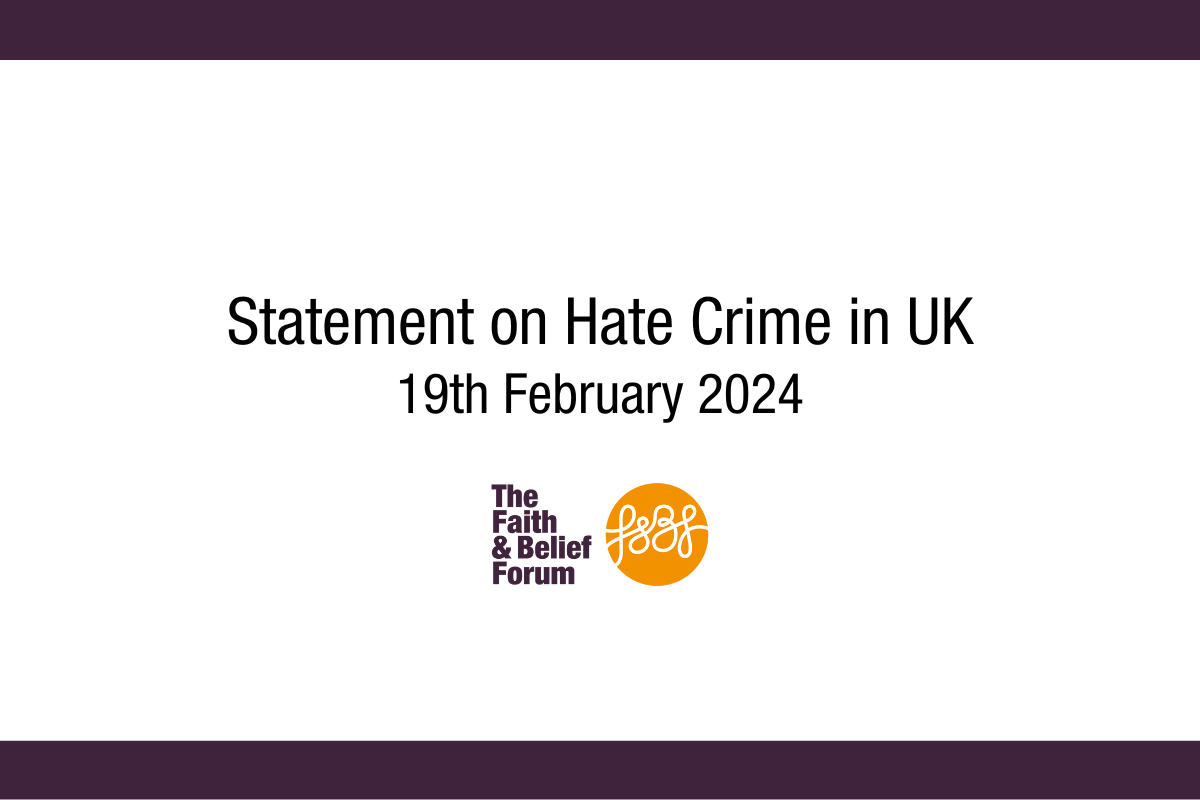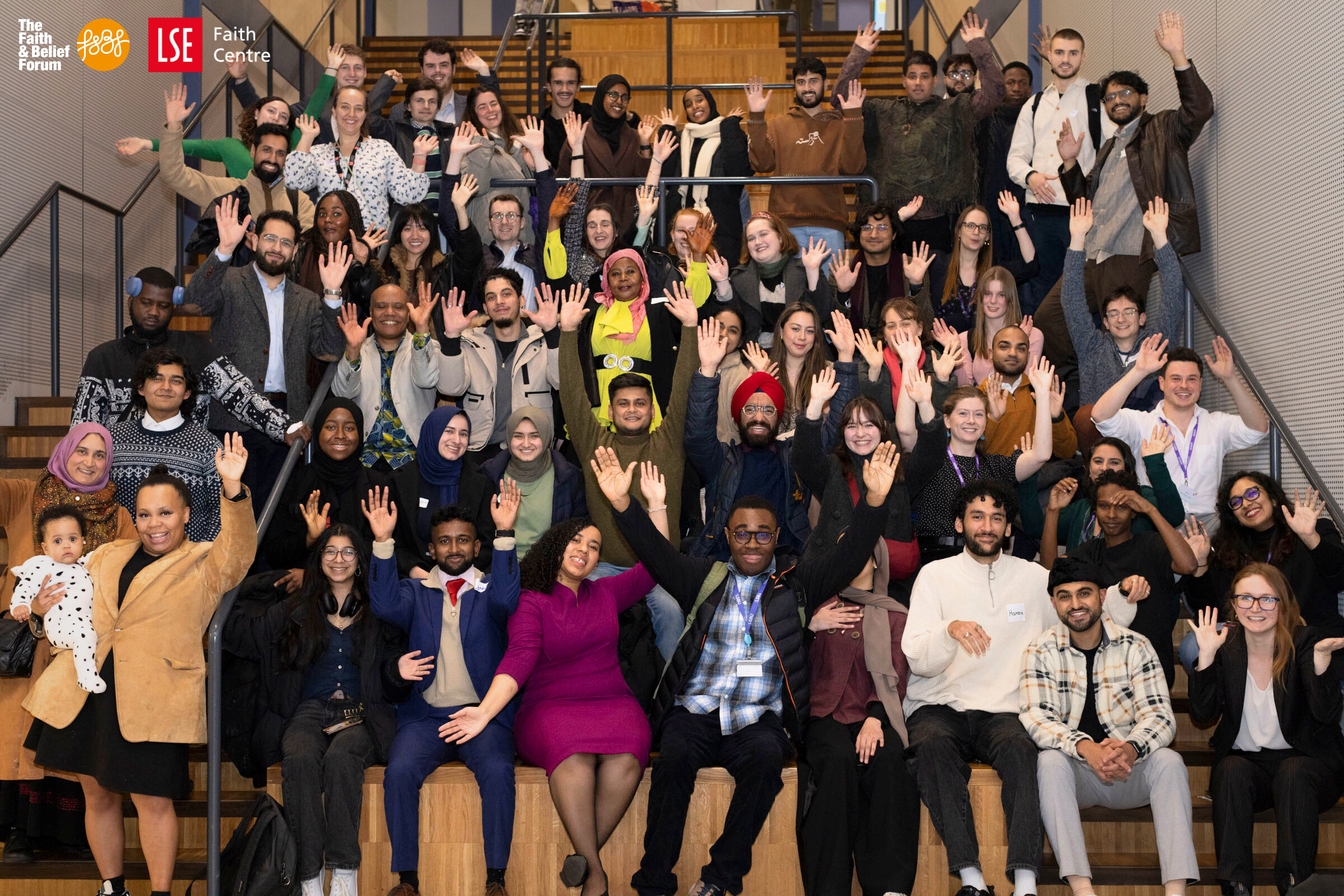
Statement on Hate Crime in UK – 19th February 2024
19 / 02 / 24
Menu

12 / 08 / 21

“What are the aims of teaching Religious Education (RE) in schools?” “Do RE classrooms do enough to include non-religious students?” “What does the new proposal of Religion and Worldviews offer?” “What do parents and other stakeholders have to say about it?” These are some of the questions being explored in an ongoing research project involving the Faith and Belief Forum.
In 2021, the Faith and Belief Forum were funded by the Culham St Gabriel’s Trust to carry out research into stakeholders’ reception of Religion and Worldviews as presented by the Commission on Religious Education (CoRE) 2018. The research is in partnership with the Open University and Inform at Kings College London.
Religion and Worldviews refers to an alternative approach to teaching RE (Religious Education) in schools, both in primary and secondary education. Religion and Worldviews was proposed by CoRE as one of the recommendations of their report from evidence gathered between the years of 2016-2018. The aim of Religion and Worldviews is to recognise the diversity within faiths, and to make more room for both religious and non-religious worldviews to be explored in the classroom. The aim is that it should be a subject for all pupils, whatever their background and offers the opportunity for those with different faiths, beliefs and worldviews to learn together.
The Faith and Belief Forum have been tasked with carrying out focus groups into perceptions of the Religion and Worldviews proposal for the RE curriculum. The focus groups are to be held with stakeholders outside the classroom, not with RE teachers and pupils but rather with those beyond the immediate classroom space. This includes members of communities, both religious and non, which make up communities surrounding schools. This also includes parents of both primary and secondary school children. Furthermore, these focus groups also include engagement with headteachers, senior leaders and multi-academy trust leaders as well as SACRE (Standing advisory committee for Religious Education) members and policy makers in the field of education. These focus groups have started to be held in July 2021, beginning with community members, and will continue to be held through to December 2021.
July 2021 saw the first round of focus groups with community members being held virtually due to Covid restrictions and safety considerations. In order to be representative, we organised focus groups from across the country in four distinct areas. These are the London Borough of Barking and Dagenham, Birmingham and the West Midlands, Lincolnshire and Sunderland. Each geographical area has led to distinct contributions and insights which will be collated and published in a report along with feedback from the upcoming focus groups.
The focus groups involved two parts. In the first session, we engaged with what participants thought was the purpose of RE, ranging from a source of community cohesion and religious literacy to ideas about its role in a child’s personal development and as a skill for critical reflection. We then explored the challenges faced by RE currently, both those suggested by participants, as well as those suggested by the CoRE and the baseline research for this project written by Inform (Link here). These challenges included questions about religion and RE’s relevancy for the modern day, they included challenges with the way RE has not been included as a core subject since the Ebacc (English Baccalaureate) of 2011 and included the issue of the way non-religious worldviews are often not represented in the RE curriculum. It also included how children from non-religious backgrounds or those who are of minority religions may not feel included or recognised in the six-world religion approach currently practiced since the 1970s in RE teaching.
In the focus group, we then went on to present Religion and Worldviews as an alternative approach to the traditional world religions approach. In this proposal, ‘Religion’ is worded as the singular, rather than the plural ‘religions’ meaning that part of studying it is the exploration of the concept of ‘religion’ itself. ‘Worldviews’ in this case is understood as a lens or framework through which each person sees the world, stemming from the experiences, influences (cultural and religious as well as non) and values. This is illustrated in the Theos video ‘Nobody Stands Nowhere’ which can be linked to here.
During the second phase of the focus group, we explored some of the opportunities that the Religion and Worldview approach offers. It allows for the inclusion of pupils’ experience who come to the classroom with non-religious worldviews as well as religious worldviews. It therefore reduces the often quite strong distinction between those who are religious and those who are non-religious, as all have a worldview. It also allows for recognition of greater diversity within religions, as well as between religions, as there are many worldviews within one religion, i.e. there are many Christian worldviews within the Christian faith and many worldviews within the umbrella term of Hinduism.
Participants shared their thoughts on the possibilities of Religion and Worldviews including those things they felt were weaknesses to the proposed subject, as well as the potential barriers and challenges to its implementation. Concerns were raised including the sense that more worldviews to focus on might lead to a reduction in the time spent on the six world religions in an already time-limited subject. Participants discussed concerns about relativity if all individual worldviews were to be represented, and concerns about teacher expertise and training when addressing such a broad subject. However, on the whole, participants were positive about the shift in the subject towards the inclusion of a diversity of worldviews both within religions, as well as across religions and non.
The Faith and Belief Forum will continue to carry out focus groups with different stakeholders throughout the Autumn with parental focus groups next in late September.
To read more on this topic, please see Inform’s baseline report on Promoting the Exploration of Religion and Worldviews in Schools – Fostering Coherency and Diversity

19 / 02 / 24

16 / 02 / 24

16 / 02 / 24